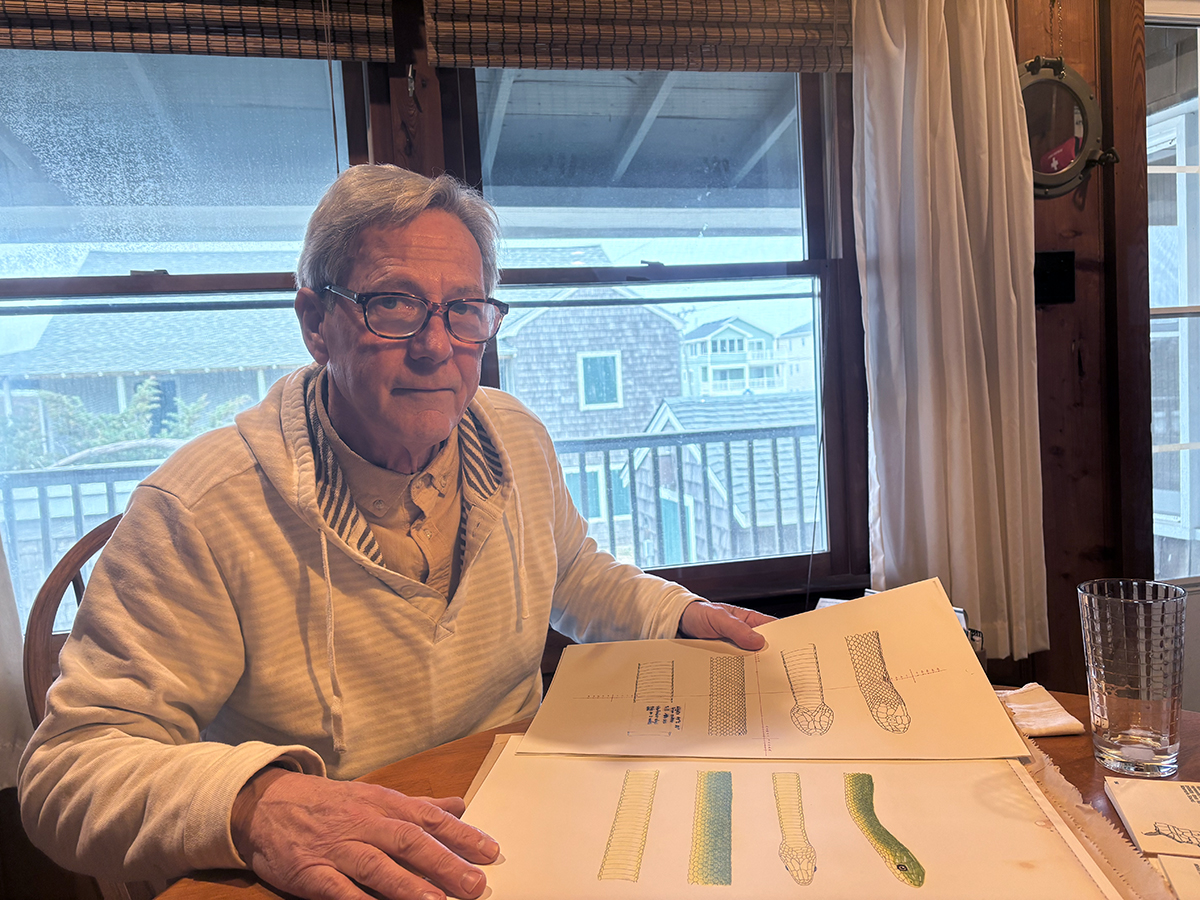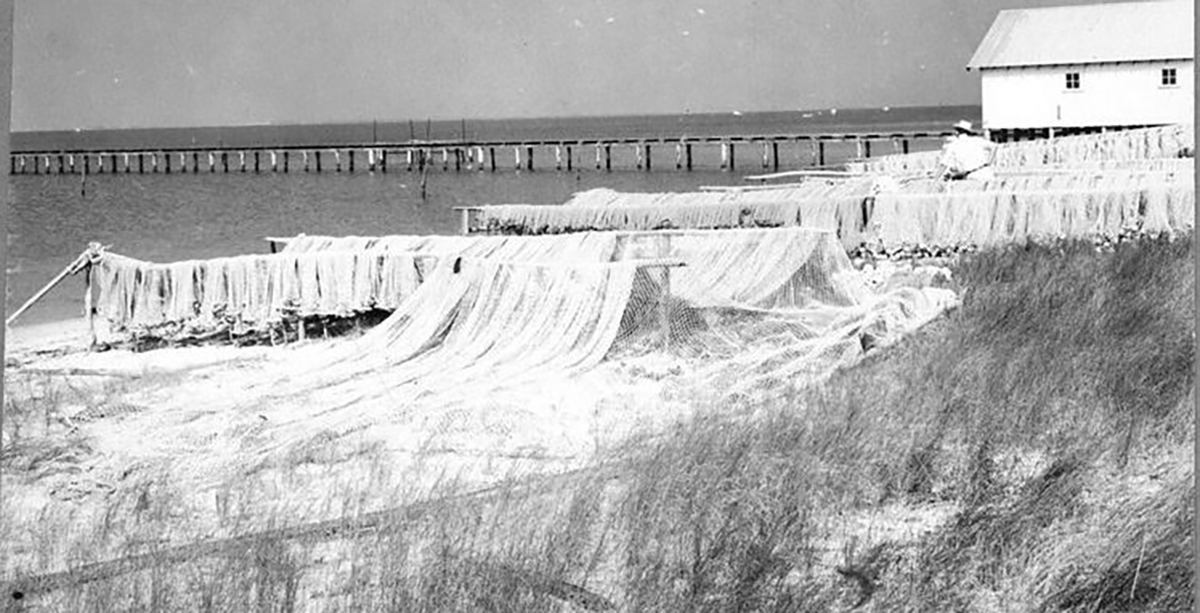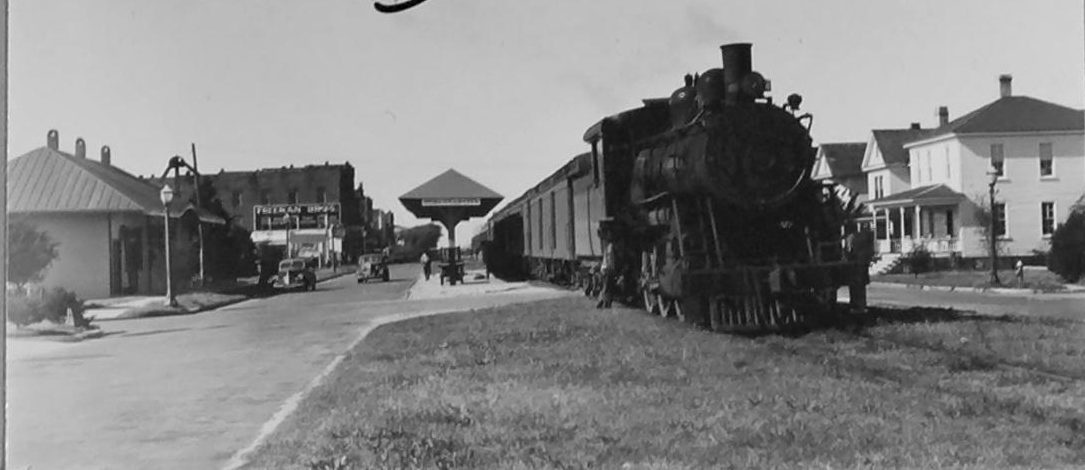HOLLY RIDGE – Lena Ritter, the indomitable fisherman who fought developers to save an island and a way of life and in the process became the eloquent voice of Stump Sound, died Monday of cancer.
Her family will receive friends from 6 p.m. to 8 p.m. today at Jones Funeral Home in Holly Ridge.
Supporter Spotlight
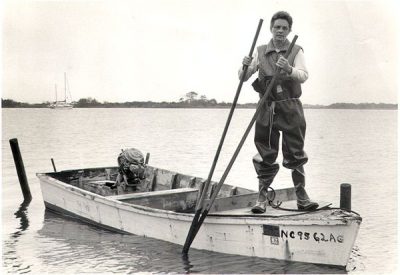
Ritter, 80, had deep roots in western Onslow County. She lived with her husband, Graham, on a piece of family land a mile from the sound, land she used to proudly say had never been sold for money. Ritter, like all her people, was a fisherman. She wasn’t a “fisherwoman” or a “fisher.” Ritter would have none of that PC stuff. She was a “fisherman” and proud of it.
“She loved that water,” Graham Ritter said yesterday. “She always lived for that water and tried to look out for it.”
That water turned her life upside down in 1983 when developers announced that they would build condominiums on Permuda Island, an undeveloped, one-and-a-half-mile long strand of sand and scrub pines in the middle of Stump Sound. Ritter was unschooled in the ways of ecology, but she knew instinctively what would happen to her water if the pines were cut down and the sand paved over.
“The runoff would have ruined it all. A whole way of life was threatened,” she said during an interview three years ago. “I couldn’t just sit by and let that happen.”
One of the first things she did was call Todd Miller, a native of Carteret County, just up the road, and the founder of a new environmental group called the North Carolina Coastal Federation. They would work closely over the next three years. Miller was the guide and interpreter for understanding state rules. “He was leading the blind through the woods,” is the way Ritter explained it.
Supporter Spotlight
She was the organizer, rousing the fishermen in language they understood. The bond between the two became close. “Lena was a remarkable person,” Miller said yesterday. “She had a deep love for Stump Sound and the way of life it supported. The people of the sound respected her and listened to what she said because she was one of them.”
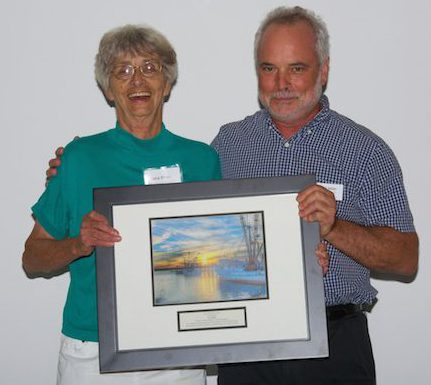
Ritter and the other fishermen of the sound, people like the late Bill and Bernice Rice, had clam bakes and fish fries to raise money to hire a lawyer out of Wilmington. They spoke out at public hearings before the Onslow County Board of Commissioners and at meetings of the state Coastal Resources Commission. Leading the way was Ritter, speaking from the heart about her water, her way of life, her home.
“It was all very personal to me,” she said at that interview in 2013. “I never spoke in public before. I remember how scared to death I was at that first meeting in Jacksonville. All I knew to do was to speak what was in my heart.”
As often happens with causes, this one took over her life. This was a woman who rarely ventured outside the county and was rarely seen in a dress outside of church. Before long, Ritter was putting on her Sunday best and attending so many meetings in Raleigh and visiting so many politicians that she had to quit fishing and take a job on the graveyard shift at the local pie factory. “It freed up my days and gave me money to go down the road for meetings,” she said. “But, oh, was I tired.”
Ritter had joined the federation’s board of directors while all this was going on and would serve as its president from 1987-90. She sometimes went to board meetings, laid her head down on the table and fell asleep.
“But she persevered,” Miller remembered. “Through all the meetings and long drives, she persevered. Some county commissioners even threatened to sue her for harassment, but she persevered. Lena always credited the federation for saving Permuda Island, but the truth is that her perseverance and her indomitable will saved the island.”
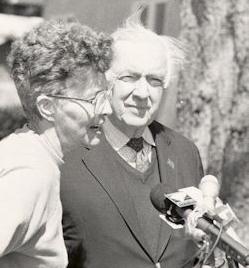
In the end, the island was set aside as a state coastal preserve.
In 1986, Ritter was chosen among 400 nominees to receive the first Nancy Susan Reynolds Award for exemplary leadership. “My knees is a-knocking and my teeth is chattering, but I’ll talk,” she said at the awards ceremony that night in Raleigh.
“I don’t remember a thing I said,” she mused years later, “but the newspaper wrote the next day that I got three standing ovations.”
After it was over, Ritter worked for a time as an environmental advocate for the federation. She also helped the organization acquire Morris Landing, a public boat landing on Stump Sound that has been preserved and opened to the public. The federation in 2013 gave Ritter its Lifetime Achievement Award.
Aunt Lena was an inspiration to her niece Tina Sanders-Hill. “She was unlike any other woman her age that I’ve ever known,” Sanders-Hill wrote Tuesday on Ritter’s Facebook Page. “She was a strong leader before it was cool for women to be strong. She paved the path for so many us of that followed behind. She was one of my very first role models on how to be a strong woman. But she balanced it with love and care and humor.”
Graham Ritter can go down to Morris Landing now, stand on the shore that his wife helped buy and gaze out over Stump Sound to an island she helped save. “That’s as good as way as any to remember her by,” he said. “She loved that water.”
The federation staff and board plan to install a permanent memorial at Morris Landing so people who visit can learn about what Ritter did to protect our coast, said Miller. “Unspoiled coastal places like Morris Landing and Permuda Island are her enduring legacy,” he said, “and we want people to know what she did to keep them that way to inspire future generations to be coastal stewards as well.”



